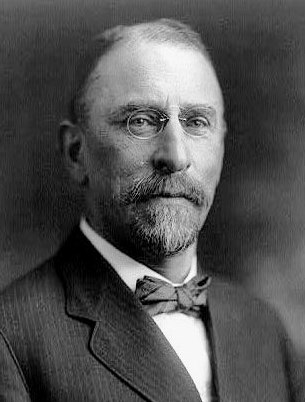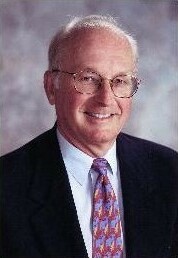Related Research Articles

The Second Barbary War (1815) or the U.S.–Algerian War was fought between the United States and the North African Barbary Coast states of Tripoli, Tunis, and Algiers. The war ended when the United States Senate ratified Commodore Stephen Decatur's Algerian treaty on 5 December 1815. However, Dey Omar Agha of Algeria repudiated the US treaty, refused to accept the terms of peace that had been ratified by the Congress of Vienna, and threatened the lives of all Christian inhabitants of Algiers. William Shaler was the US commissioner in Algiers who had negotiated alongside Decatur, but he fled aboard British vessels during the 1816 bombardment of Algiers. He negotiated a new treaty in 1816 which was not ratified by the Senate until 11 February 1822, because of an oversight.

David Salisbury Franks (1740–1793) was aide-de-camp for General Benedict Arnold during the American War of Independence.

Henry Morgenthau was a German-born American lawyer and businessman, best known for his role as the ambassador to the Ottoman Empire during World War I. Morgenthau was one of the most prominent Americans who spoke about the Greek genocide and the Armenian genocide of which he stated, "I am firmly convinced that this is the greatest crime of the ages".
Idealism in the foreign policy context holds that a nation-state should make its internal political philosophy the goal of its conduct and rhetoric in international affairs. For example, an idealist might believe that ending poverty at home should be coupled with tackling poverty abroad. Both within and outside of the United States, American president Woodrow Wilson is widely considered an early advocate of idealism and codifier of its practical meaning; specific actions cited include the issuing of the famous "Fourteen Points".

Michael Bornstein Oren is an American-Israeli diplomat, essayist, historian, novelist, and politician. He is a former Israeli ambassador to the United States (2009–2013), former member of the Knesset for the Kulanu party and a former Deputy Minister in the Prime Minister's Office.

Realism, a school of thought in international relations theory, is a theoretical framework that views world politics as an enduring competition among self-interested states vying for power and positioning within an anarchic global system devoid of a centralized authority. It centers on states as rational primary actors navigating a system shaped by power politics, national interest, and a pursuit of security and self-preservation.

The Israel lobby are individuals and groups seeking to influence the United States government to better serve Israel's interests. The largest pro-Israel lobbying group is Christians United for Israel with over seven million members. The American Israel Public Affairs Committee (AIPAC) is a leading organization within the lobby, speaking on behalf of a coalition of pro-Israel American Jewish groups.
The Jewish lobby are individuals and groups predominantly in the Jewish diaspora that advocate for the interests of Jews and Jewish values. The lobby references the involvement and influence of Jews in politics and the political process, and includes organized groups such as the American Jewish Committee, the American Israel Public Affairs Committee, B'nai B'rith, and the Anti-Defamation League.

Luther Bradish was an American lawyer and politician who served two terms as the lieutenant governor of New York from 1839 to 1842, while his Whig Party colleague, William H. Seward was governor. He was also co-founder of Children's Village.
Henry James Anderson was an American scientist and educator who worked with the great-grandson of Benjamin Franklin, Alexander Dallas Bache. He became Knight Commander, President of the Particular Council of New York, and Head of the Supreme Council.
The 'OMEGA' Memorandum of March 28, 1956, was a secret U.S. informal policy memorandum drafted by Secretary of State John Foster Dulles for President Dwight D. Eisenhower. The goal of the policy was to reduce the influence in the Middle East of Egypt's President Gamal Abdel Nasser because he seemed to be leaning in favor of the Soviet Union and he failed to provide the leadership that Dulles and Eisenhower had desired toward settling the Arab-Israeli conflict. Eisenhower approved the memorandum. Around the same time, the British government formulated a similar strategy. The United States and Britain intended to coordinate activities between them to implement the new strategies in successive stages.

George Jones Adams was the leader of a schismatic Latter Day Saint sect who led an ill-fated effort to establish a colony of Americans in Palestine. Adams was also briefly a member of the First Presidency in the Church of Jesus Christ of Latter Day Saints (Strangite). In preparation for colonizing Palestine, he changed his name to George Washington Joshua Adams, to tie himself to two well-known country builders: George Washington of the United States and Joshua, from the Hebrew Bible.

George Bush was an American biblical scholar, pastor, abolitionist, and academic. A member of the Bush family, he is a distant relative of both President George H. W. Bush and President George W. Bush.

Khairy Pasha Palace is a neo-Mameluk building and former palace of Khairy Pasha, located on 113 Qasr El Eyni Street, in Tahrir Square, Cairo. It served as the American University in Cairo's Tahrir Square campus since 1920 until 2008 when the new campus was inaugurated in New Cairo. The building in the photograph on the right was originally the Girls' School of the Greek Community of Cairo. In 1964 it was sold to the AUC and served as the Greek Campus.

The Missing Peace: The Inside Story of the Fight for Middle East Peace (ISBN 0-374-19973-6) is a 2004 non-fiction book by Dennis Ross on the history of and his participation in the Israeli–Palestinian peace process and the Arab–Israeli peace process. Ross, an American diplomat, was the Director of Policy Planning in the State Department under President George H. W. Bush and the special Middle East coordinator under President Bill Clinton.

William B. Quandt is an American scholar, author, and professor emeritus in the Department of Politics at the University of Virginia. He previously served as senior fellow in the Foreign Policy Studies Program at the Brookings Institution and as a member on the National Security Council in the Richard Nixon and Jimmy Carter administrations. He was actively involved in the negotiations that led to the Camp David Accords and the Egypt–Israel peace treaty. His areas of expertise include Algeria, Egypt, Israel, Palestine, the Israeli–Palestinian peace process, and U.S. foreign policy.
Khuplam Milui Lenthang was an Indian anthropologist, doctor, and ethnographer specialising in the origins of the Kuki people.

The Madrid Conference of 1991 was a peace conference, held from 30 October to 1 November 1991 in Madrid, hosted by Spain and co-sponsored by the United States and the Soviet Union. It was an attempt by the international community to revive the Israeli–Palestinian peace process through negotiations, involving Israel and the Palestinians as well as Arab countries, including Jordan, Lebanon and Syria.
James Jakob Williams was an African-American runaway slave and soldier. He took part in the Second Barbary War as a member of the US Navy and later alongside the Greek revolutionaries during the Greek War of Independence. Williams was severely injured fighting for the Greek cause and was discovered by American abolitionist and philhellene Jonathan Peckham Miller. Miller brought Williams to his home in Poros where he properly recovered and lived out the rest of his life as a free man in Greece.
References
- 1 2 3 Oren, Michael B (2007). Power, Faith, and Fantasy: America in the Middle East 1776 to the Present . New York: W.W. Norton & Co. p. 13. ISBN 0-393-33030-3.
- ↑ "Publishers Weekly Review", Publishers Weekly, July 30, 2007
- 1 2 3 Halkin, Hillel. "Power, Faith, and Fantasy by Michael B. Oren Archived 2009-02-22 at the Wayback Machine ." Commentary , January 2007.